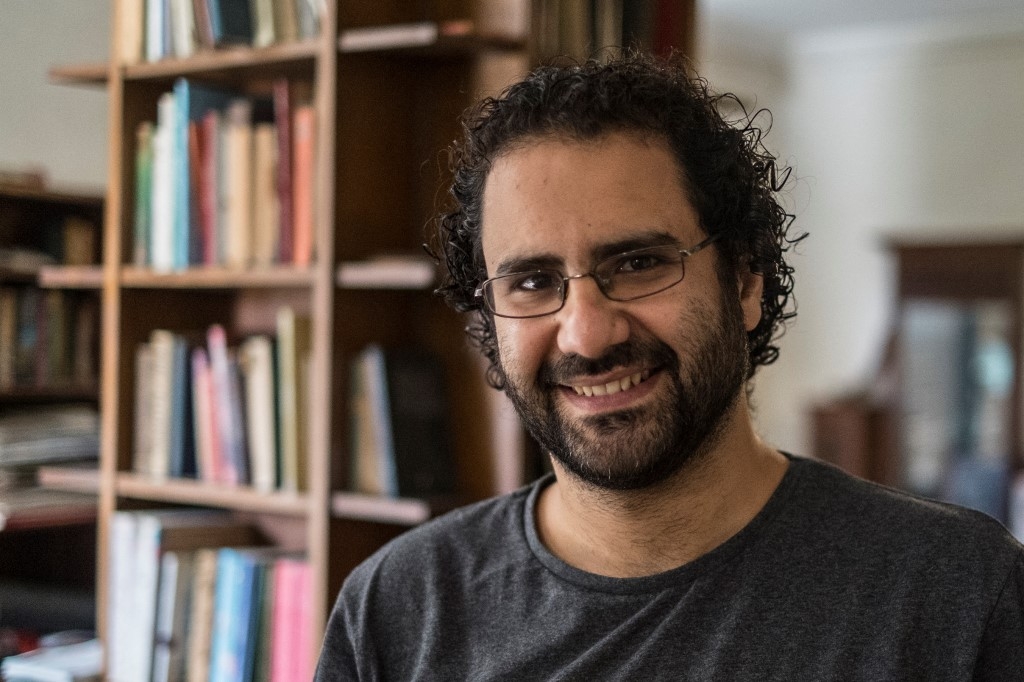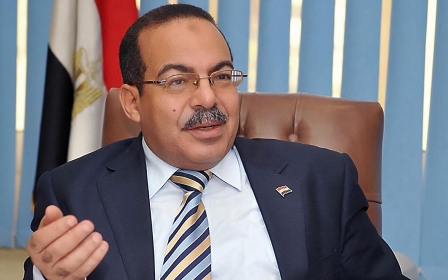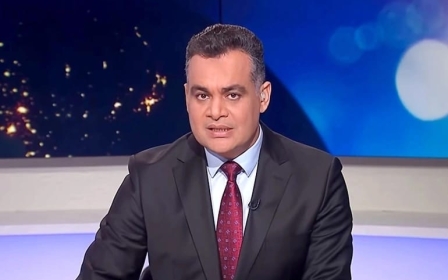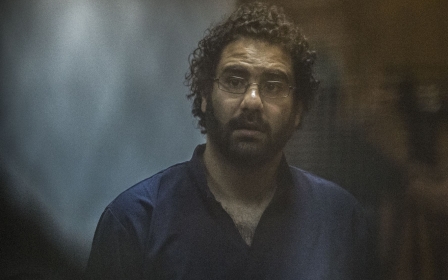Alaa Abd el-Fattah: UK minister raised case with senior Cairo officials

Lord Tariq Ahmad of Wimbledon, the UK’s minister of state for North Africa, has revealed that he raised the case of the Egyptian-British political prisoner Alaa Abd el-Fattah with Egypt's Foreign Minister Sameh Shoukri on 21 May.
The statement by Ahmad, who is also in charge of human rights, marks the first publicly known correspondence between Cairo and London since Abd el-Fattah became a British citizen in April.
The pro-democracy activist, who was an icon of the 2011 Egyptian revolution, has been on hunger strike for 62 days, since 2 April, and his family is increasingly worried about his deteriorating condition.
Ahmad said that he had also raised the case with the Egyptian ambassador to London, and that the British embassy in Cairo was in touch with Egyptian authorities about the detainee.
Abd el-Fattah’s sister, Mona Seif, welcomed the news on Thursday and expressed her hopes that the pressure would lead to her brother's release.
New MEE newsletter: Jerusalem Dispatch
Sign up to get the latest insights and analysis on Israel-Palestine, alongside Turkey Unpacked and other MEE newsletters
At last I can share this, we have been assured that @Alaa's case was raised with the Egyptian authorities at the highest level, this letter sent out from the @FCDOGovUK to different MPs, and then forwarded to their constituents
— Mona Seif (@Monasosh) June 2, 2022
The activist has spent eight out of the last 10 years in jail on a range of charges.
While in jail, in December 2021, he was sentenced to five years in prison by an emergency state security court on charges of spreading “false news", in a trial widely condemned by human rights defenders. The evidence used against him was a retweet.
Egyptian or free
In recent years, a handful of dual nationals of the estimated 65,000 political prisoners in Egypt have been freed by President Abdel Fatteh el-Sisi's government after relinquishing their Egyptian citizenship.
Speaking at an event at the Frontline Club in London last month, Abd el-Fattah's sisters Mona and Sanaa Seif said that, although they are not advocating for that solution, their brother would sacrifice the citizenship of his homeland if it meant ending his years-long ordeal.
Abd el-Fattah's family says his detention conditions have improved since his transfer to Wadi el-Natrun prison complex two weeks ago. He has been allowed access to books and has a mattress, unlike in Tora prison.
His sisters told Middle East Eye during the Frontline Club event that the move to the new prison was, in part, a result of the attention being drawn to his case by campaigners and the raising of his profile.
"We feel that Alaa has decided that he wants an end to all of this. And he wants it to be decided by him. He has decided to take this hunger strike till the end," said Mona.
Nevertheless, they said the UK needed to do more.
"If Britain had been doing enough, Alaa would be here with us. Britain is capable of resolving this issue," said Sanaa.
Middle East Eye delivers independent and unrivalled coverage and analysis of the Middle East, North Africa and beyond. To learn more about republishing this content and the associated fees, please fill out this form. More about MEE can be found here.




